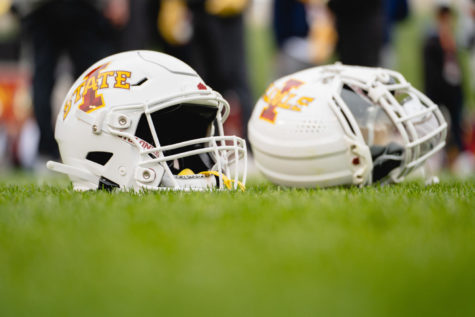Lovett: NCAA, not programs, real problem behind major college scandal
August 21, 2011
Believe it or not, Miami is not the problem.
And, for that matter, neither is Ohio State, Butch Davis or a rogue booster.
The problem isn’t the money, the cars or the free tattoos. Or the hookers. Or the abortions. Although those aren’t good, either.
There’s a bigger problem at work with all this deceit, scandal and cheating in major college sports than dirty programs or slimy program backers. It’s a problem that dates back 24 years.
The real underlying problem is the NCAA’s apparent inability to balance crime and punishment.
In the late 1980s, college football was out of control. Recruits and players were lavished with money and cars as means to lure them to certain schools or keep them happy during their college years. It was an arms race. The best gifts got the best players, who brought the biggest wins, which brought the biggest profit, which bought the best gifts.
It culminated with the 1987 “death penalty” laid down on Southern Methodist University’s football program — which had been feeding gifts and money under the table to players and recruits for much of the decade — canceling the Mustangs’ 1987 football season and effectively killing the program, as a whole.
In essence, the so-called death penalty — the NCAA’s right to ban competition for an entire season, if not more — was used to scare the rest of major college football into compliance with NCAA rules, most of which were broken and ignored at the time. And, for the most part, it worked.
It worked, that is, until the NCAA went soft.
Once SMU was forced out of the 1987 season, it sat out the 1988 season to rebuild its decimated program as best it could.
The Mustangs have had three winning seasons since their return in 1989, going 6-5 in 1997 and 7-5 in both 2009 and 2010.
Seeing it had destroyed one of football-crazy Texas’ prouder football programs, the NCAA all but abandoned the death penalty, never wanting to have that effect on a program again.
Despite its intentions, though, going soft was the last thing the NCAA ever should have done.
After a relatively quiet period in the ’90s, football programs are back to their old, scandalous ways, with no fear of retribution.
Whether it be the two-year bowl ban, four-year probation and a loss of scholarships handed down to USC in 2010 or the two-year bowl ban, five-year probation and scholarship deduction Alabama faced in 2002 — the Crimson Tide came out OK, winning a championship in 2009 — the harshest punishments handed down in this decade seem to have done nothing to deter illegal behavior in other big-money programs.
In 2011 alone, the NCAA has readily accepted self-imposed sanctions by five of its proudest football programs, among many more over the course of the decade, not to mention the fiasco on South Beach, whether or not claims made through Yahoo! Sports can be corroborated.
So, what real consequence is there for major rules violations?
As long as the NCAA allows programs like Miami and Ohio State to self-report and self-impose sanctions, the Miamis and Ohio States will continue to treat players to the little luxuries — and, apparently, the big ones — in order to keep the best and brightest stars happy.
Two years away out of postseason play is a slap on the wrist for a program like Alabama or USC. Scholarship reductions don’t do much to clean up programs, either.
If NCAA President Mark Emmert is serious about cleaning up the image and function of his major college sports — and, by the looks of it, he should be — it’s time for him to start coming down hard on programs, big or small, for the biggest and baddest of violations.
The death penalty isn’t necessary — or even reasonable — in even the most extreme cases. But maybe, just maybe, it’s time for the NCAA to stop coddling its programs.
Fear is a great motivator, and nothing will scare big programs more than seeing Emmert come down hard on a program like Miami.
A severe penalty — something like cutting 30 scholarships per year or a 10-year bowl ban — won’t magically make the problem go away without a commitment from Emmert and the NCAA to consistently punish the guilty.
It won’t be the death penalty, but it sure will sound that way to Ohio State, Oklahoma and Florida.
And you can bet your ass it’ll get their attention.
















